Running a business is a challenging job, no matter its size or type. Ensuring proper heating in your commercial facility, especially during a Toronto winter, is one of several major challenges you have to deal with. The good news is that when it comes to commercial heating in Ajax, ON, you can trust any problem to our expert technicians. And we do mean any problem: we have more than 30 years of experience with industrial and commercial heating systems that makes us qualified to tackle any heating challenge in any commercial facility.
We could definitely tell you some unusual stories about heating problems we’ve solved for clients. But it’s more useful to you if we discuss the common commercial heating issues we’re called to handle. These are the types of challenges that your business is most likely to run into during the coming winter.


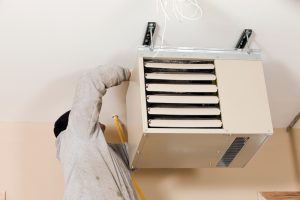
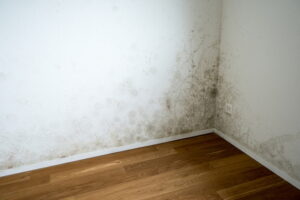 Mold is an insidious and serious issue for any building—residential, commercial, industrial. The development of mold creates a major two-prong problem. On one hand, mold can have a devastating impact on the health quality of indoor air.
Mold is an insidious and serious issue for any building—residential, commercial, industrial. The development of mold creates a major two-prong problem. On one hand, mold can have a devastating impact on the health quality of indoor air.  The true “heating season” will soon be upon us, and no matter what type of business or facility you run in the Greater Toronto Area, you’ll want to make sure that its heating systems are working properly.
The true “heating season” will soon be upon us, and no matter what type of business or facility you run in the Greater Toronto Area, you’ll want to make sure that its heating systems are working properly. 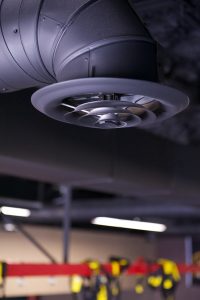 Most commercial and industrial facilities need ductwork for basic operation of their HVAC systems. Whether it’s for ventilation of fumes, proper circulation of fresh air, or the distribution of cooling and heating, these ducts handle a great deal of work.
Most commercial and industrial facilities need ductwork for basic operation of their HVAC systems. Whether it’s for ventilation of fumes, proper circulation of fresh air, or the distribution of cooling and heating, these ducts handle a great deal of work. 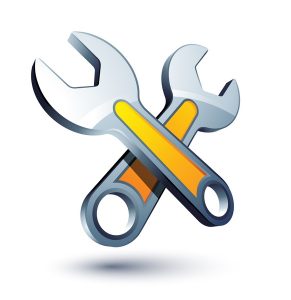 The best time to begin to think about your commercial heating needs is during the fall. Your business may rely on heating throughout the year for process or to protect equipment, or you may only require powerful heating during cold weather. Regardless of how you use your commercial heating, fall is one of the key times to schedule regular maintenance and tune-up service for your HVAC system and other heating equipment to ensure it works its best during the rigors of the coming season.
The best time to begin to think about your commercial heating needs is during the fall. Your business may rely on heating throughout the year for process or to protect equipment, or you may only require powerful heating during cold weather. Regardless of how you use your commercial heating, fall is one of the key times to schedule regular maintenance and tune-up service for your HVAC system and other heating equipment to ensure it works its best during the rigors of the coming season.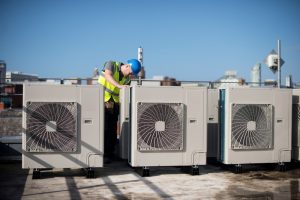 The intense heat of this summer, not only here in Toronto but throughout North America and Europe, has spotlighted the vital importance of reliable and energy-efficient air conditioning systems. This extends to both the commercial and the residential sectors. It has never been more important for commercial facility owners and managers to stay on top of their requirements for
The intense heat of this summer, not only here in Toronto but throughout North America and Europe, has spotlighted the vital importance of reliable and energy-efficient air conditioning systems. This extends to both the commercial and the residential sectors. It has never been more important for commercial facility owners and managers to stay on top of their requirements for 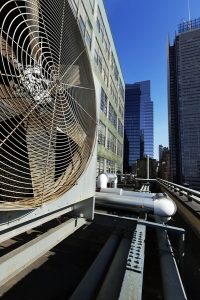 The “repair vs. replace?” question is one of the major ones in the HVAC industry, whether it’s for the air conditioning system in a small house or the array of rooftop units supplying climate control to a larger commercial building. The question is often a pressing one for commercial and industrial HVAC systems because of the expense involved in replacement. Business owners and facility managers want to know the right decision to make when they have failing equipment: continue to have professionals repair them, or have professionals replace them?
The “repair vs. replace?” question is one of the major ones in the HVAC industry, whether it’s for the air conditioning system in a small house or the array of rooftop units supplying climate control to a larger commercial building. The question is often a pressing one for commercial and industrial HVAC systems because of the expense involved in replacement. Business owners and facility managers want to know the right decision to make when they have failing equipment: continue to have professionals repair them, or have professionals replace them?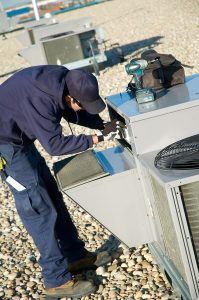 One of the common repair issues we often deal with when it comes to
One of the common repair issues we often deal with when it comes to 